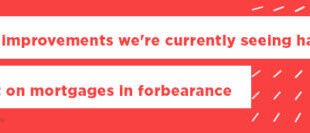3 minute read
We’re in the middle of a global pandemic, and the stock market in well off its highs.
6.6 million Americans filed for unemployment in the week ending April 4th.
Yes, interest rates are very low right now, and lots of homeowners could save money by refinancing their mortgage.
But lenders are worried about borrowers defaulting on their mortgage loans early and thus have increased their credit score requirements.
Rate Search: Check Today’s Mortgage Rates
Lenders are Increasing Credit Requirements
Minimum credit score requirements vary depending on the lender and the type of mortgage loan.
FHA loans require a 580 credit score with a 3.5% down payment and a 10% down payment for a 500-579 score.
However, given the recent developments with COVID-19 and the nation shut down, many lenders have increased their minimum requirements making it more difficult for borrowers to get approved for a mortgage loan.
Some lenders can approve borrowers with a 580 credit score for an FHA loan. However, within the past couple of weeks, lenders have increased their requirement to 600-620, some even higher.
Borrowers who were approved for a mortgage a month ago may find they no longer qualify because of the increased credit score guidelines.
Banks are Worried About the Economy
It was just a couple weeks ago that the Fed cut rates to help ease the burden of the global pandemic.
Mortgage rates, which were already at all-time lows, are even lower today if you’re someone who is not at risk of losing your job or having a reduction in income, its not a bad time to buy a house.
Sixteen million Americans have filed for unemployment over the past three weeks, and that has banks and lenders worried. With an unstable economy and many businesses being forced to shut down, more layoffs are a certainty, and lenders are scared there will be a spike in foreclosures.
Purchase applications are down almost 50% since last month. With fewer buyers in the market, there are going to be some great deals that can be found.
Refinancing Your Mortgage
Lenders are not just making it more challenging to qualify for a new mortgage; credit requirements for refinancing your loan have been increased as well.
There is no doubt most people may be able to save a ton of money by refinancing to a lower mortgage rate. And if you’re credit is good enough to refinance your mortgage, you should do it. However, homeowners with less than perfect credit may not be eligible to refinance their home until lenders row back their borrower requirements.
See How Much You Can Save by Refinancing Your Mortgage
Increase Your Odds of Getting Approved
With the entire nation shut down and quarantined, you probably have a lot more free time. Use this time to improve your financial situation and increase your credit score.
Borrowers with excellent credit will qualify for the best loan terms and lowest interest rates. In some cases, such as a mortgage loan, good credit can save you tens of thousands of dollars over the course of the loan.
Pay down your credit cards – You want to make sure your credit score is as high as possible before applying. If you’re currently using more than 35% of the available credit on your credit cards, you should pay down the balance to less than 20% of the limit to maximize your score.
Compare offers with multiple lenders – You should also compare loan offers and rates with at least 3-4 different lenders to ensure you’re getting the best deal possible. These loan offers can also be used to help you negotiate loan terms.
More tips to improving your credit score before applying for a loan
The Bottom Line
Mortgage rates are at historic lows, and while the pandemic has put a black cloud over our economy, it’s an excellent time to refinance your mortgage or to buy a new house if your financially stable and your employment is not at risk due to the coronavirus.
Is your interest rate above 5%?
If so, you can save thousands by refinancing to a lower rate.
Speak to a lender and get a quote now
Randall has over 15 years of experience in the mortgage and credit industries. He spends a chunk of time helping consumers understand their credit, advise them on how to increase their credit, and lending his mortgage expertise to help them find the right type of loan. Randall lives in Dallas, Texas with his two sons.



